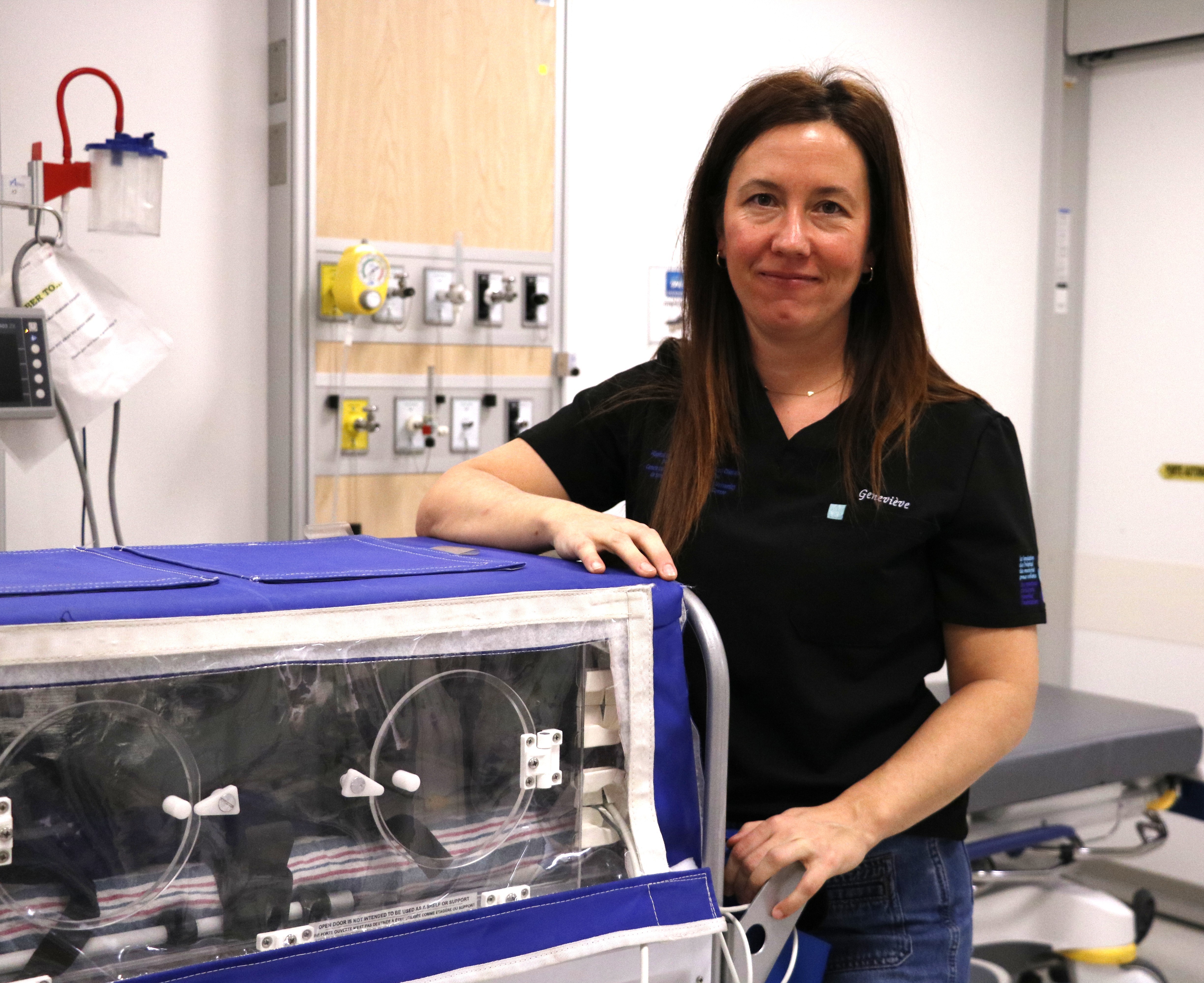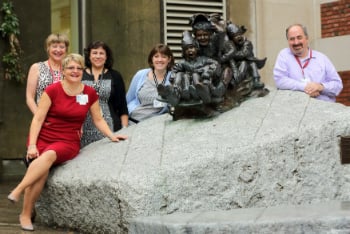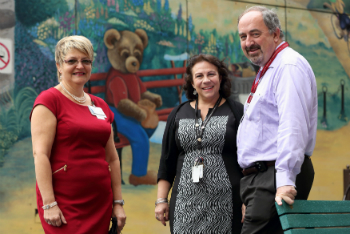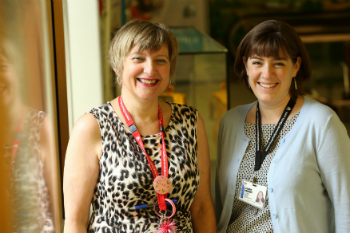
Celebrating Critical Care Transport Nurses at the MCH
18 February 2026
Rise in respiratory infections and measles outbreak: important infection prevention measures at the Montreal Children’s Hospital.
Read moreWelcome to the Montreal Children's Hospital

15 October 2014
When Fr. Paul Geraghty, coordinator of Spiritual Care services at the Montreal Children’s Hospital, first came to the hospital more than 20 years ago, it was a time of change for what was then called Pastoral Services. “The department used to be based on a traditional model,” Fr. Paul explains, “but the new approach was in keeping with a more ecumenical, more multi-faith and spiritual model that was being developed at the time.”
Fr. Paul and his colleagues Doreen Shalla, Susan Buell and Jennifer Bourque are the hospital’s chaplains, known as Spiritual Care Professionals, and each plays an important role within many of the hospital’s care teams. Fr. Paul is part of the Pediatric Intensive Care Unit (PICU), Doreen works in Neurosurgery, Trauma and Emergency, Susan works with the Oncology team, and Jennifer is on the Neonatal Intensive Care Unit (NICU) and pediatric wards. In addition, they provide 24-hour on-call service to all areas of the hospital, which often means rushing to Emergency in the middle of the night.

The chaplains have all completed required courses in Clinical Education for Spiritual Care at the Royal Victoria Hospital. Between them, they have also obtained degrees in theology, ministry and in Fr. Paul’s case, law. “People are often surprised by that,” he says with a laugh. Each of them came to the Children’s with chaplaincy experience, ranging from youth ministry to working with seniors. Although none of them set out to work in pediatrics, it has turned out to be the perfect fit for all of them.
Fr. Paul explains that their role at the Children’s is to provide service, presence and accompaniment to families. “We are all, without exception, fully integrated into the care teams,” he says. They often meet the parents on the first day their child is admitted, although in Oncology and the NICU, where patients can have long stays, the introductions might happen a bit later. “Sometimes we get referrals from a nurse who has talked to a family,” says Susan, “which is a nice lead-in because they know we’re part of the team.”
Meeting parents ‘where they are’
“We work with people from many different religious traditions,” says Jennifer, “and we are there for all parents on the unit. We’re very committed to meeting people ‘where they are’ in terms of dealing with their child’s illness. It’s very important that we listen to them first to know what they need from us.”
The chaplains acknowledge that, for any number of reasons, parents are not always ready to talk to them. Some parents aren’t interested, while others feel they already have support from their community. But the chaplains’ ongoing presence on the units sometimes yields surprising results. “One of the parents approached me after being there for almost a year,” says Susan. “She had watched me interact with other parents and children, and eventually felt ready to talk.” The chaplains also watch out for parents who have many different caregiver roles. “Sometimes a family member is the caregiver for another family member, but nobody is taking care of their needs. That’s another way we can help,” says Doreen.

The chaplains are sometimes asked to help families who want to speak to someone from their own faith, such as an imam or rabbi, when their child is dying, or if they need guidance around critical decisions about their child’s care. One of those people is Sid Dworkin, a rabbi who comes to the Children’s once a week and on-call as needed.
Parents aren’t the only family members they talk to. Sometimes, the children themselves will ask to speak to them. From time to time, the chaplains also provide support to their colleagues at the Children’s, and they hold memorial services for patients who have passed away.
In keeping with the Children’s role as a teaching hospital, the chaplains have made presentations at Emergency and nursing orientation rounds, and they’ve taught residents and other staff members on subjects such as spiritual needs, grief, rituals, and bereavement follow-up.
Fr. Paul, Doreen, Susan and Jennifer all agree that working in pediatrics has been a great gift. “When our patients are discharged, that’s often the end of our work with the family,” says Doreen. “But occasionally we’ll see a family six months or a year later when they’re here for a check-up and you get to see how the child has progressed. Those moments bring us a lot of joy.”